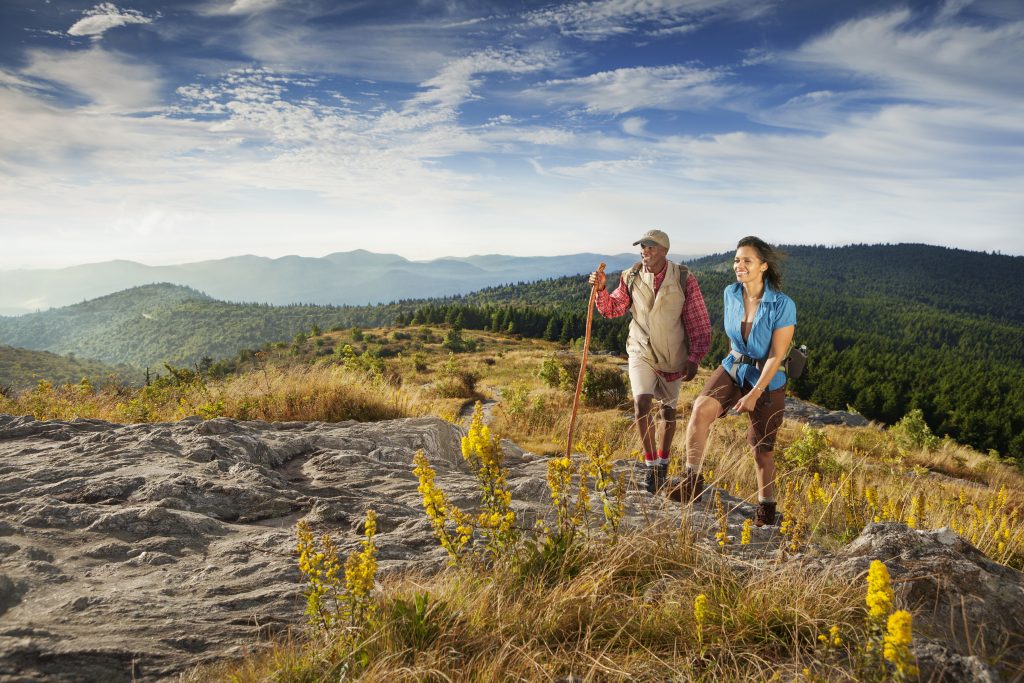When you have a discussion about hiking, it does not mean you have to go for something as extreme or outlandish as the Appalachian Trail. It can be as trouble-free as taking a walk up a hill or through a forest in your neighborhood’s surrounding area. For the most part, hiking is a great stress reliever and will cost you nothing to very little. Undeniably, the physical and mental benefits you can get from hiking ensure you can live a more fulfilled and fruitful life.
But even though hiking can be enjoyable, there are also a number of survival and precautions tips one must take into contemplation to stay safe and avoid danger. Among the more significant tips is for one to hike in a group. It is much secure for one to hike in a group particularly if it is on a nature trail you are unfamiliar with. David Turlington has always been on the lookout for new hiking trailsever since he took on the outdoor lifestyle in college.

Hiking with Friends
The motivation and support obtained from the group will assist you in those times when you might think of packing up and parting. Essentially, even when you are hiking on trail you are used to, it does not injure to bring at least one individual along as this is a natural restraint to anyone along the trail that may be loitering with evil intent.
You also must take safety measures when hiking up and down a mountain. On the gradient, you should slackly lace your boots around your ankles to give sufficient room for movement. When going downhill, you must avoid blocking your toes by placing your heels in the back of the boots and firmly tying your laces around the ankles while leaving them wobbly at the toes.
Use a trekking pole or hiking stick. These sticks help with stability and balance when going up or down a slant. They also reduce the knee pressure, provide an additional support to your legs, and help you maintain the upper body particularly when you embark on a long trek.
Of all the hiking equipment and gear you require, your hiking boots are probably the most significant. Apart from your hiking boots, there are other types of equipment needed for you hike. If you prepare on embarking on a day hike, you will require water purifying tablets (if you are not carrying your own water), hiking socks, a back pack, traction devices, walking stick, rescue beacons, binoculars, signaling gear, jackets, first aid kit, sunscreen, a compass and food. For the night hike, you will need a tent, camp stoves, sleeping bag, matches, rain gear, and a flashlight.
According to David J. Turlington, you should get a diagram of the direction you plan on taking. If you plan to hike unaccompanied or with one another individual, inform your family (or a ranger if you are hiking through a park) on the place where you will be and the time you are supposed to return. That way, somebody can come looking for you if you are just simply lost or in trouble.




